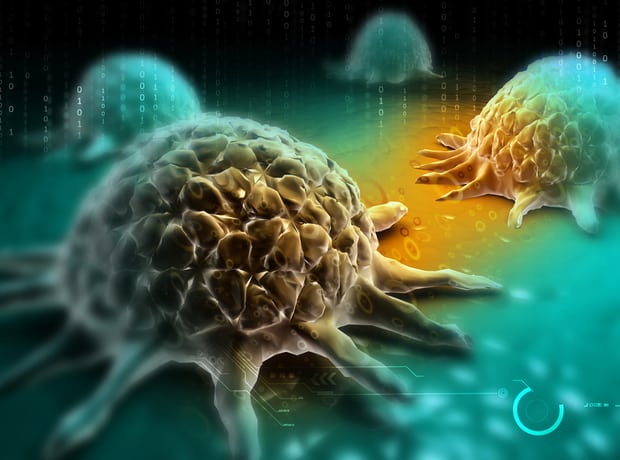Combined, ovarian and breast cancer affects more than 60,000 women in the UK each year.
Researchers from Manchester University NHS Foundation Trust (MFT) have found that women treated for ovarian cancer caused by an inherited faulty gene have a lower risk of developing breast cancer after treatment.
This study Genetics in Medicine This research was supported by the National Institute for Health and Care Excellence Manchester Biomedical Research Centre.
Ovarian cancer affects around 7,500 women each year and breast cancer, the most common cancer in the UK, affects around 55,000 women in the UK.
MFT researchers looked at the breast cancer histories of 701 women with ovarian cancer who carried faulty BRCA1 and BRCA2 genes, which, when mutated, significantly increase the risk of developing cancer.
By evaluating breast cancer incidence by age group for up to 15 years after an ovarian cancer diagnosis, the researchers found that people with the faulty gene were significantly less likely to develop breast cancer in the five years after their ovarian cancer diagnosis than people without ovarian cancer.
For women with ovarian cancer and the BRCA2 gene, the risk of developing breast cancer after an ovarian cancer diagnosis was 3.3% after two years, 6.2% after five years, 10.4% after 10 years, and 20.3% after 15 years, whereas for women with a faulty BRCA1 gene, the risk was 2.1% after two years, 5% after five years, 15% after 10 years, and 29.1% after 15 years, with increased breast cancer risk after 5, 10 years, and 10 years of follow-up.
Professor Gareth Evans, MFT and consultant in medical genetics and cancer epidemiology at the University of Manchester, suggested this was due to “the effect of platinum-based chemotherapy”.
She added: “Women with long-term life expectancy should discuss with their doctors the increased risk of developing breast cancer after 10 years, particularly those with BRCA1 mutations. This includes presenting all the options available to them, such as MRI scans and risk-reducing mastectomy.”







